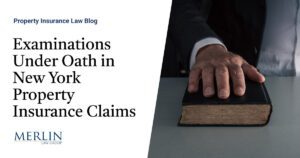Offshore Tax Loophole Helps Americans Cheat IRS, Senate Says

Rich Americans are hiding “vast amounts of income” from the Internal Revenue Service by exploiting a “deeply troubling” loophole in a 12-year-old U.S. law designed to crack down on offshore tax evasion, according to a Senate Finance Committee report.
The committee, led by Oregon Democrat Ron Wyden, focused on the loophole after investigating Robert Brockman, the billionaire software developer indicted in the largest tax-evasion case against an individual in U.S. history.
Brockman, who died this month at 81 before his case came to trial, allegedly used offshore trusts and corporations to hide $2 billion in income from the IRS.
According to the Senate report released Wednesday, the popular method of tax avoidance involves the 2010 Foreign Account Tax Compliance Act, or FATCA. The law requires banks around the world to report assets and accounts of US clients to the IRS, but wealthy Americans have figured out a way to sidestep the rule and draw less scrutiny from the banks.
“It doesn’t take a rocket scientist to see how this loophole leads to billions in tax evasion,” Wyden said in a separate statement.
The report described a “shockingly easy” process that starts by setting up shell companies abroad and registering them with the IRS as offshore financial institutions. The IRS issues the entities unique Global Intermediary Identification Numbers, or GIINs, which relieve the banks of FATCA’s requirement to investigate whether they’re held by Americans, the report said.
Hundreds of thousands of entities holding GIINs are based in tax havens like the Cayman Islands, British Virgin Islands and Guernsey. In most cases, the IRS issues the identifiers without conducting any investigation into the recipient’s assets, activities or beneficial owners because the agency says it is “extraordinarily difficult to do meaningful due diligence,” according to the report.
‘Shell Bank’ Loophole
“This ‘shell bank’ loophole creates widespread risks for offshore tax evasion and money laundering,” the report said. “Due to persistent budget cuts and decade-long campaign to gut the IRS, the agency does not have the personnel or the capabilities to adequately monitor whether these offshore entities are properly reporting accounts belonging to US persons.”
Senate investigators, citing court documents, said Brockman set up entities in the tax havens of Bermuda, Cayman Islands, Malta, Nevis, Switzerland, Singapore, Guernsey and the British Virgin Islands. He used those foreign entities to hide more than $2 billion in untaxed income, much of it from his investments in Vista Equity Partners, the Justice Department alleged.



